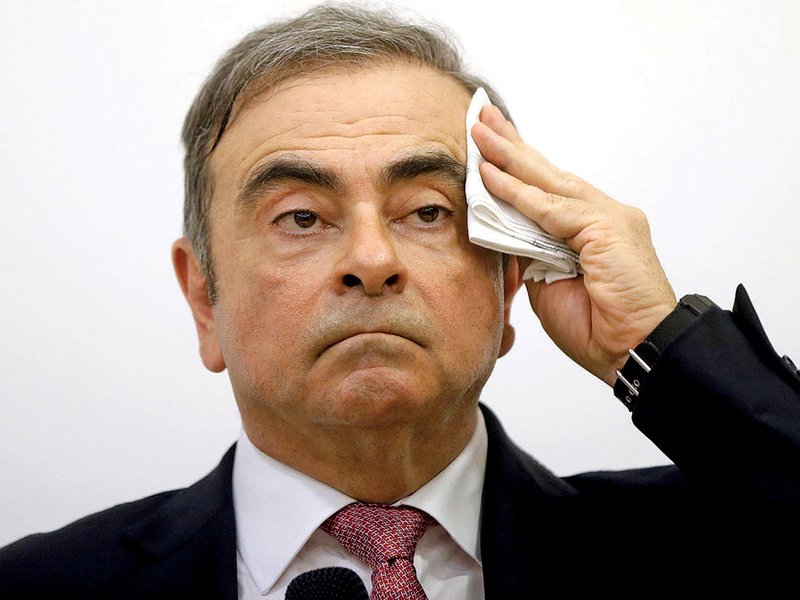
TOKYO — Lebanon asked Carlos Ghosn not to identify Japanese government officials in his internationally televised news conference last week, where the fallen auto executive lashed out against Nissan Motor Co. and those he says were behind a plot to have him arrested for financial crimes, people familiar with the matter told Bloomberg.
The Lebanese government, pushed by Japanese diplomats, exerted pressure on Ghosn before he spoke to reporters on Jan. 8 in Beirut so that he wouldn’t divulge names or the details of how he escaped Japan, said the people, asking not to be identified given the sensitivity of the issue. Lebanon agreed to talk to Ghosn as a way of maintaining good diplomatic relations with Japan, they said. Ghosn intended to name names in the government but understood and agreed to stay quiet, according to the people.
Ghosn’s shock escape from Japan while out on bail has embarrassed Prime Minister Shinzo Abe‘s government and opened up a new wound with Nissan, the carmaker he led for two decades. The former CEO fled Tokyo at the end of December in a clandestine operation that saw him spirited out of the country by private jet and delivered via Turkey to Lebanon, where he is a citizen and which doesn’t have an extradition agreement with Japan.
The former chief of Renault SA and its alliance with Nissan and Mitsubishi Motors Corp. blames his arrest and prosecution in Japan in 2018 on a conspiracy between the Yokohama-based automaker and the government. He has denied charges of financial misconduct and using Nissan money for personal gain, and said he left Japan to escape an unjust legal system.
BLOG: Japan throws stones at Ghosn from glass house
Japan’s government conveyed its concerns to Lebanon about a defendant who had fled illegally speaking freely in another country, a Japanese government official said, asking not to be identified because the discussions weren’t public. The Ghosn incident is seen as serious enough to affect relations between Japan and Lebanon, the official said.
Lebanon is dependent on overseas aid and for decades has walked a tightrope in a region where various powers have fought for control and influence.
Lebanese officials and the country’s leadership didn’t respond to repeated requests for comment. A representative from Japan’s foreign ministry said the government didn’t pressure the Lebanese government.
Government pressure
Members of Japan’s ruling Liberal Democratic Party also urged the country’s foreign ministry to try and get Lebanon to halt the press conference, or at least “make sure the content is decent,” Shigeharu Aoyama, a lawmaker from the party, wrote in a blog post just before Ghosn’s news conference.
Ghosn was born in Brazil and raised in Lebanon, where he has investments in real estate and vineyards and continues to be viewed as a business icon. He has appeared on Lebanese postage stamps, and within days of his 2018 arrest, a billboard featuring his image loomed over the streets leading to downtown Beirut.
“We are all Carlos Ghosn,” it read.
The day before Ghosn’s news conference, Lebanese President Michel Aoun met with Japanese ambassador Takeshi Okubo in Beirut. Aoun said the country will fully cooperate with Japan’s request to help with the investigation into Ghosn, adding that the Lebanese government played no part in Ghosn’s escape.
Ghosn used the appearance to portray himself as a refugee from an unreasonable and unjust legal system. Proclaiming his innocence, Ghosn accused Japanese prosecutors, government officials, and Nissan executives of conspiring to topple him so as to prevent a further integration of the Japanese carmaker with Renault.
When asked about the involvement of Japan’s government in his downfall, he said: “I am imposing on myself silence on this part of the presentation, because in no way do I want to show anything or say anything that will hurt the interests of the Lebanese people or the Lebanese government.”